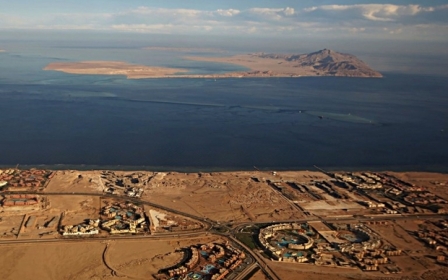Saudi Arabia plans luxury tourism resorts on Red Sea islands and coast

Saudi Arabia has announced plans to turn an area of untouched red sea coastline the size of Belgium into a luxury beach resort, it announced Tuesday.
The Red Sea project will build luxury hotels, residential units and transport infrastructure on 50 islands and a string of sites on the Red Sea coast.
The area, which covers more than 180km of coastline between Umm Lajj and al-Wajh, will even have its own "semi-autonomous" legal status, and laws "on par with international standards" in the hope of drawing tourists and making the conservative country one of the world’s leading tourism destinations.
The plan is part of Vision 2030, an ambitious economic reform project to diversify the kingdom's oil-dependent economy following a slump in energy prices.
The announcement comes on the heels of a controversial treaty which ceded control of two Red Sea islands from Egypt to Saudi Arabia. However, those islands are not included in the planned resort.
Initial investments will be provided by the Public Investment Fund before the project is opened to international investors, state news agency SPA reported.
Construction will begin in the third quarter of 2019 with a first phase that includes expanding a domestic airport and developing luxury hotels and housing, expected to be completed by the third quarter of 2022, it said.
A flyer advertising the project boast of the untouched region’s average year round temperature of 30C and describes it as "an exquisite luxury tourism destination, with islands, nature, and culture, setting a new standard for sustainable development and positioning the Kingdom on the global tourism map"
Visitors will have access to the Madain Saleh site, a Unesco World Heritage site on the mainland.
Saudi Arabia aims to diversify its economy which is heavily dependent on oil and increase family spending on recreation. Riyadh aims to launch hundreds of recreation centres across the country by 2020.
Alcohol, cinemas and theatres are banned in the kingdom, an absolute monarchy and one of the world's most conservative countries.
Under its notorious guardianship system, Saudi Arabia also has severe restrictions on women, who are expected to cover from head to toe when in public.
They are banned from driving and cannot travel, study or work without written permission from a husband or male relative.
Most visitor will be able to visit the islands without a visa or would be able to apply for one online and Saudi Arabia hopes to attract 1 million visitors per year by 2035.
The project will create up to 35,000 jobs and generate 15 billion Saudi Riyals ($4bn) annually.
The announcement comes after a controversial treaty between the kingdom and neighbouring Egypt over control of two red sea islands.
The deal handed control of the strategically important islands of Tiran and Sanafir, which sit at the entrance to the Gulf of Aqaba, from Egypt to Saudi Arabia.
Egypt regained control of the islands in 1979 after their capture by Israel in 1967 in the Six-Day war.
Egyptian schools taught that the islands were part of Egypt and soldiers had died fighting over them with Israel.
The handover provoked anger in Egypt and led to protests in the capital.
The islands control access to Jordan and Israel’s only red sea ports, Aqaba and Eilat, respectively.
Stay informed with MEE's newsletters
Sign up to get the latest alerts, insights and analysis, starting with Turkey Unpacked
Middle East Eye delivers independent and unrivalled coverage and analysis of the Middle East, North Africa and beyond. To learn more about republishing this content and the associated fees, please fill out this form. More about MEE can be found here.




